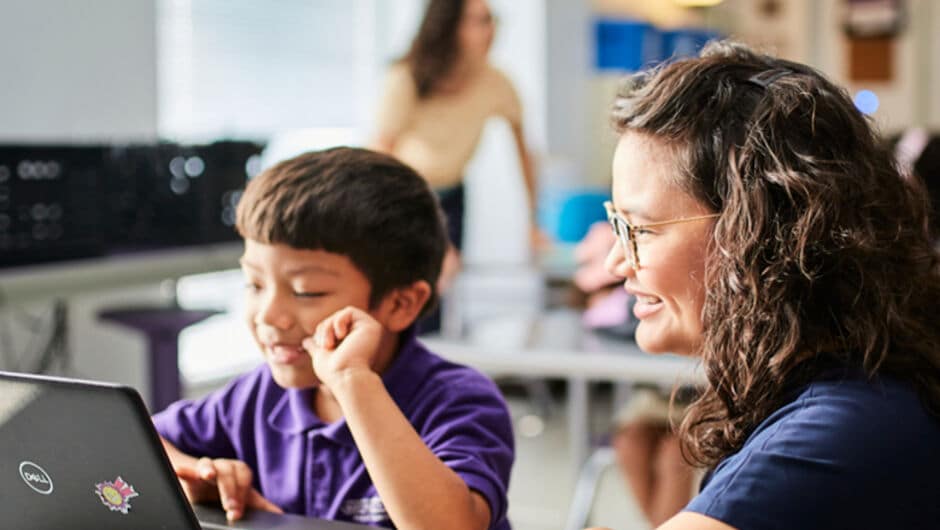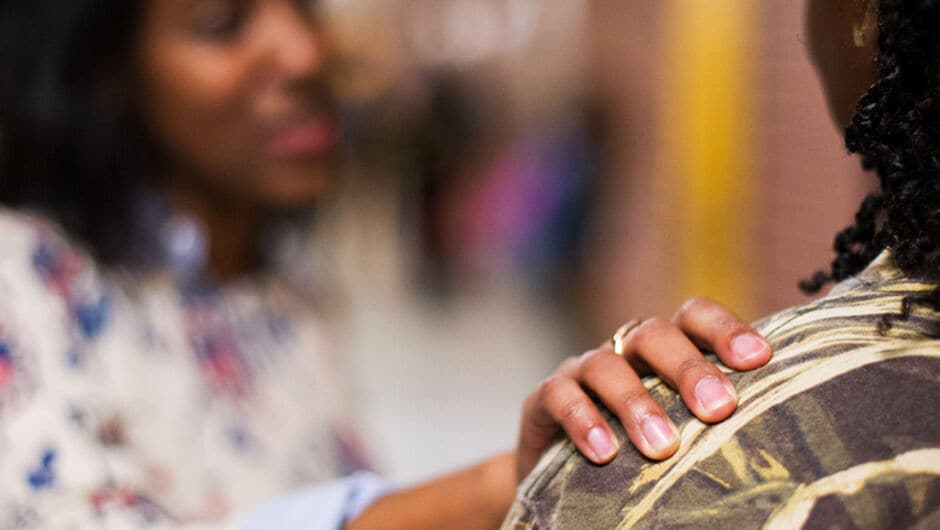
Online Resources to Connect LGBTQ+ Youth With Powerful Stories of Hope
The It Gets Better Project partners with TFA to release a teacher’s guide for sharing the award-winning film ‘Moonlight’ with students—in person and online.
Practicing social distancing has been challenging for everyone. For many LGBTQ+ students, social distancing can pose additional mental health and safety concerns when students no longer have access to the support systems that provided safety and protection at school.
Without the proximity of an affirming community—including friends, teachers, and safe spaces such as Gender and Sexuality Alliances (GSAs)—many LGBTQ+ students are at higher risk for anxiety and depression. And for some LGBTQ+ youth, staying at home may not be a safe option if other family members are unaccepting of who they are.
A recent report from the Trevor project on the impact of COVID-19 on the mental health of LGBTQ+ students urges educators to check in with LGBTQ+ students and find ways to stay connected, such as virtual office hours. “As schools move their academic curriculum to online delivery, there is a need to ensure that protective factors provided by schools such as supportive individuals and extracurricular activities can also be accessed virtually,” the report states.
Drawing on the strength of our communities and creating a safe place to connect and share stories—even if it’s in a virtual environment—can help make social distancing feel a little less isolating, especially for LGBTQ+ youth. That is the very premise for the It Gets Better Project, a nonprofit organization with a mission to uplift, empower, and connect lesbian, gay, bisexual, transgender, and queer youth around the globe through an online video storytelling platform.
Justin Tindall (San Antonio ‘12) leads It Gets Better EDU, an education-focused program of the It Gets Better Project. In his role, Justin helps provide educators—whether they are teachers, counselors, school administrators, or student leaders—with tools and support to introduce It Gets Better stories into an educational setting.
Building on his work at the It Gets Better Project and his connections with the Teach For America network, Justin recently partnered with TFA to produce an enhanced educator guide for sharing the Oscar-winning film, Moonlight, with students. The film explores the intersection of LGBTQ+ and Black identities through the eyes of a young boy navigating a complicated life at school and at home.

Since It Gets Better launched in 2010, the project has amassed a collection of over 70,000 video stories. Members of the LGBTQ+ community including students, parents, and celebrities from around the world offer hope and encouragement about growing up LGBTQ+.
When Justin joined staff at the It Gets Better Project, he wanted to make sure those stories were reaching the young people who needed them most—through meaningful classroom experiences. In addition to providing online guides and videos, Justin and his team also make school visits and support educators who are creating a safe and supportive space to have important conversations about LGBTQ+ identities with students. He says the project is filling a big need.
“We had educators and student leaders and parents reach out to us saying, ‘I love these videos, but I just don't know how to introduce them to these young people that I work with or that are in my life. Do you have any materials?’ To be able to create that has been such a fulfilling experience,” Justin says.
For Justin, this work is not only fulfilling but very personal. Growing up in a Mormon community, it wasn’t until after he finished grad school at Brigham Young University that he felt ready to come out to his friends. He says the moment that changed his life was when he saw a video produced by a newly formed GSA at his alma mater.
“Seeing my peers, seeing kids who grew up in the same communities, in the same church, talk proudly and openly about who they were. It was that moment where I said, well, if they can do it, then I can do it and I'm never going back,” Justin says.

After moving to Los Angeles, Justin made several connections through TFA’s LGBTQ+ network, including Tim’m West who leads TFA’s LGBTQ+ Community Initiative. Justin also joined TFA’s national PRISM board where he works on support and advocacy initiatives for LGBTQ+ students and educators.
Through these network connections, an opportunity came up to help educators share another powerful story of LGBTQ+ identities with students—the story of Chiron from the Oscar-winning film Moonlight.
The film, based on Tarell Alvin McCraney’s play In Moonlight, Black Boys Look Blue, traces Chiron’s journey into adulthood, starting as a young Black boy growing up in a rough neighborhood in Miami, Florida. Throughout the film’s three acts, Chiron navigates a complicated world of poverty, bullying, masculinity, and his emerging identity as a young gay man.
Justin partnered with a broad and diverse group of educators, including the film’s production company, the National Black Justice Coalition, Tim’m, and Sarah Taylor (New York ‘04), his former instructional coach. Together they created an enhanced educator guide for sharing the film in class, building off of a previous version that TFA’s LGBTQ+ Community Initiative released a few years ago. The free guide is now available for an expanded network of educators to download and provides resources and discussion questions for each section of the film.
“It's a much easier way to present the material when educators are working with such limited time, whether that be in their classroom or a 30-minute lunch GSA meeting,” Justin says. “This new guide makes it easier because it comes in bite-sized pieces.”
Justin says his organization was excited to partner on the film in particular because the intersectionality of Chiron's many identities resonates with a lot of different students. The film presents a unique story that has never been seen before on the big screen.
“Whether you are gay, whether you are Black, whether you have been raised in poverty, whether you've faced drug abuse and drug addiction in your community, whether you've been in the juvenile detention system, there are so many things in Chiron's story that I think people can connect to,” Justin says.
It Gets Better EDU is currently in the process of developing resources and tips for how educators can make remote classrooms more LGBTQ+ inclusive, to add to the library of educator guides.
Justin says he’s on a mission to expand the breadth and reach of stories that have the power to instill hope and change the lives of the next generation of LGBTQ+ youth.
“I want to work tirelessly to make sure that every kid has that opportunity to see a video or a film or read a book that creates that ‘no turning back’ moment where they know who they are and feel empowered and proud to live the truest life they possibly can.”
Download the Moonlight educator’s guide and browse the It Gets Better library to find honest and uplifting videos shared by members of the LGBTQ+ community.
Sign up to receive articles like this in your inbox!
Thanks for signing up!
Content is loading...






